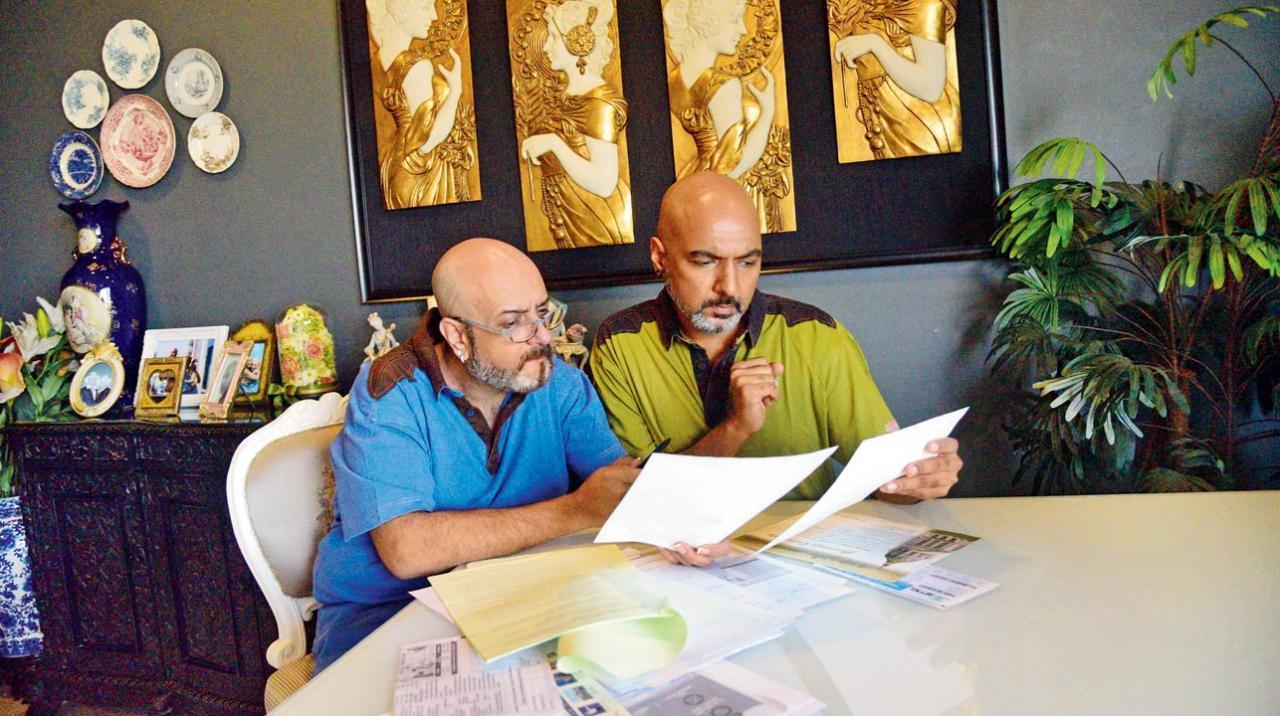Home / Sunday-mid-day / / Article /
How same-sex, live-in partners are navigating financial hurdles
Updated On: 08 January, 2023 12:30 PM IST | Mumbai | Jane Borges
In a bid to ensure financial security to all, insurers and banks have decided to provide health covers and joint accounts to same-sex and live-in partners, but a lot of work still needs to be done on the ground

Mumbai-based couple Vishaal Asrani and Jiji Subi say that they had to sign a partnership form as co-directors of Vishaal Asrani’s Institute of Performing Arts, to start a current account together, as they weren’t allowed to have a joint account. Pic/Pradeep Dhivar
It`s been a first of many firsts for Vishaal Asrani and Jiji Subi. Earlier last week, the Mumbai-based gay couple, who’ve been together for 19 years, got their first life insurance policy. “It’s our only policy together,” shared an emotional Asrani, over a telephonic chat. Twelve years ago, this would have been unthinkable, admits Subi. The pair had, for the longest time, struggled to get a joint account. “We were always asked about our relationship, and to show proof of that,” says Subi. While the couple was married in San Francisco in 2008, in the “pre-Decriminalisation of Section 377 era”, this wasn’t considered a legal proof. To avoid further hassles, Subi who was in the Air Force, continued his account with a nationalised bank, while Asrani had his own independent one with a private bank. But worried about their money falling into the wrong hands, in the wake of something unfortunate happening to either of them, they decided to sign a partnership form, as co-directors of Vishaal Asrani’s Institute of Performing Arts. The couple then started a current account, with each other as nominees. “It was still not a joint account,” says Asrani, adding, “And we were still not given the status of a couple.”
Recently, the same bank reached out to them, asking if they were keen on investing in a savings insurance plan, which had a “low premium and offered great returns”. “I made it clear that I would only opt for the plan if my partner was allowed to be a nominee and identified as my spouse. And lo and behold, they agreed,” Asrani shares. While he is overjoyed, he says, “this is something that should have been our right from the very beginning. I shouldn’t have had to prove my relationship to anybody.”



